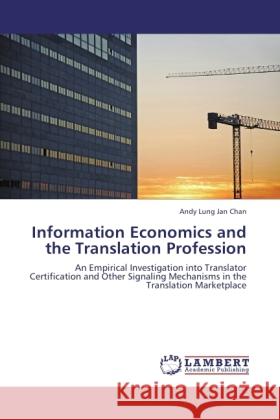Information Economics and the Translation Profession » książka
Information Economics and the Translation Profession
ISBN-13: 9783845433783 / Angielski / Miękka / 252 str.
This book uses the theoretical framework of information economics to analyze the translation profession. In particular, the economic concepts of asymmetric information and adverse selection are utilized. Due to the problem of asymmetric information, it is sometimes argued that when translation service buyers need to recruit new translators, they cannot effectively distinguish between a good translator and a bad one and hence tend to pay a price that is below the level when there is perfect and complete information. As a result, good translators may leave the translation profession. It is sometimes suggested that a translator certification system can act as an effective signal to differentiate between good translators and bad translators. A triangulation method is employed in this study to investigate the translator certification system and its signaling effects, using a number of research procedures (corpus analysis, questionnaire surveys, an experiment using fictitious résumés and interviews). This study should be valuable to those working in the translation profession as well as people who are interested in the complex and ever-changing global translation market.











